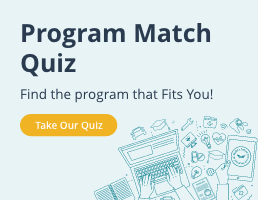UEI College is committed to fostering an environment that is conducive to learning and achieving one’s personal and career goals. With that in mind, UEI College prohibits the use of alcohol and drugs on campuses.
All campuses are free from drugs and alcohol. Our policies concerning this matter are as follows:
- NO student or faculty member shall arrive to class or one’s workplace under the influence or impaired by any drugs or illegally obtained prescription medications
- NO student or faculty member will be under the influence of any legally prescribed drugs including marijuana, as this can impair cognitive and motor functions
- NO student or faculty member shall possess, illegally manufacture, or distribute controlled substances on campus or at the workplace; transferring, selling, storing, or purchasing alcoholic beverages on any UEI campus is against campus policy
If any student or faculty member is found to be in violation of this policy, that student or faculty member will receive appropriate disciplinary action including dismissal from school or employment with UEI and the involvement of law enforcement, when needed.
Use of Alcohol and Marijuana
While recreational use of marijuana has been legalized in many states, possession or use of marijuana on UEI campus or in the workplace is a violation of our school and workplace policies. Any violation may result in disciplinary action being taken including dismissal from school or employment at UEI College.
Alcohol is a substance that can lead to addiction. Excessive drinking is dangerous and is linked to a higher risk of health problems such as injuries, liver disease, cancer, and violence. Anyone who is under the age of 21 or anyone who binge drinks regularly is at a higher risk of these health problems. As of 2020, more than 37 million Americans aged 12 years and older were current illegal drug users who used within the last 30 days, according to the National Center for Drug Abuse Statistics. Illegal drugs or misused prescription drugs include marijuana, heroin, methamphetamines, cocaine, and other opioids.
Alcohol is the most commonly used and abused substance among youth in the United States!
Alcohol is one of the most commonly abused substances, especially in individuals 20 and under. More than 10% of Americans aged 12 years and older had Alcohol Use Disorder in 2020, with 7.10 million 12- to 20-year-olds reporting drinking in the last month.
While most American adults consume alcohol at least once in their lifetime, 6.7% will develop Alcohol Use Disorder, according to the National Center for Drug Abuse Statistics. Every day, 385 Americans die as a result of excessive alcohol use, alcoholism or Alcohol Use Disorder.
When You Drink Too Much, What Happens?
People who abuse alcohol will experience a wide variety of ailments and it affects more than just their overall well-being too. In fact, it affects the community and families. Some of the common outcomes from alcohol abuse include the following:
- Car accidents and DUI offenses, which can result in serious injury or death
- Heart disease, cancer, liver disease, high blood pressure, and stroke
- Pregnant women who drink can pass on fetal alcohol disorders to their unborn babies
- Increased sexual risks what can lead to STDs, unintended pregnancy, or HIV
- Increased risk of injuries, falls, depression, suicide, sexual assault, violence, and homicide
Treatment and Resources
UEI College is committed to making sure all students and employees succeed and because of that, we can provide you with information on appropriate rehabilitation, treatment, and substance abuse counseling in a confidential environment.
Students or employees can voluntarily reach out to the campus president or executive director at their home campus, in confidence, for any referrals or information about available programs that offer treatment, counseling, and rehabilitation for substance abuse.
Some Resources That Can Help People Fight Addiction Include the Following:
- The Alcoholism and Drug Abuse Hotline - 1-800-ALCOHOL
- https://www.aa.org/
- Narcotics Anonymous
- https://www.cdc.gov/family/college/index.htm
- https://www.youtube.com/watch?v=HTiq0odyTsE
- Alcohol & Drug Abuse Awareness and Prevention
Sources of Statistics:
Center for Disease Control and Prevention (CDC)





